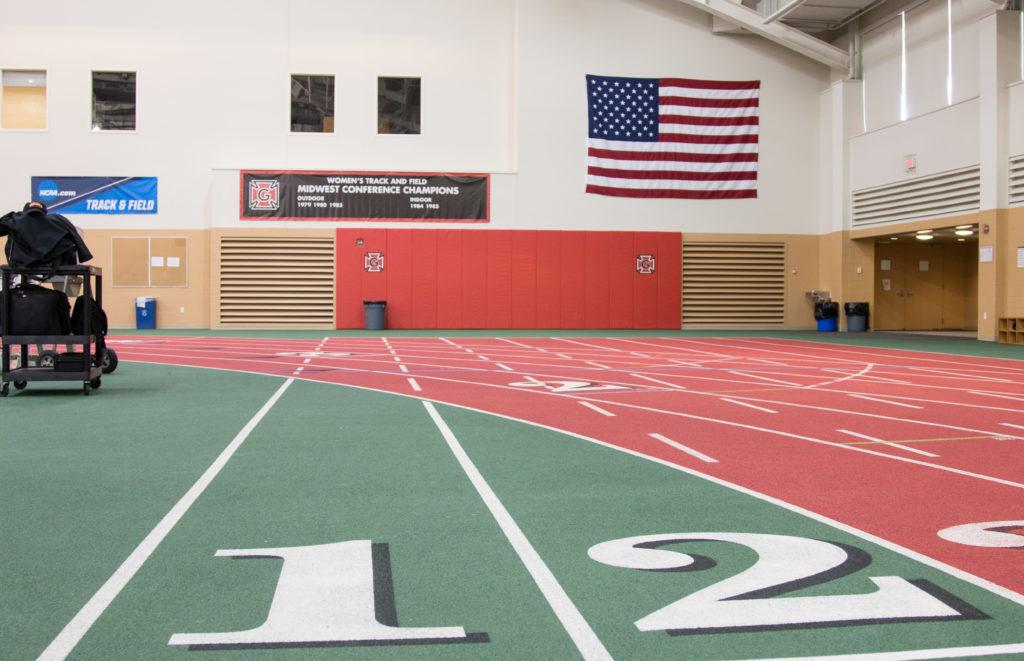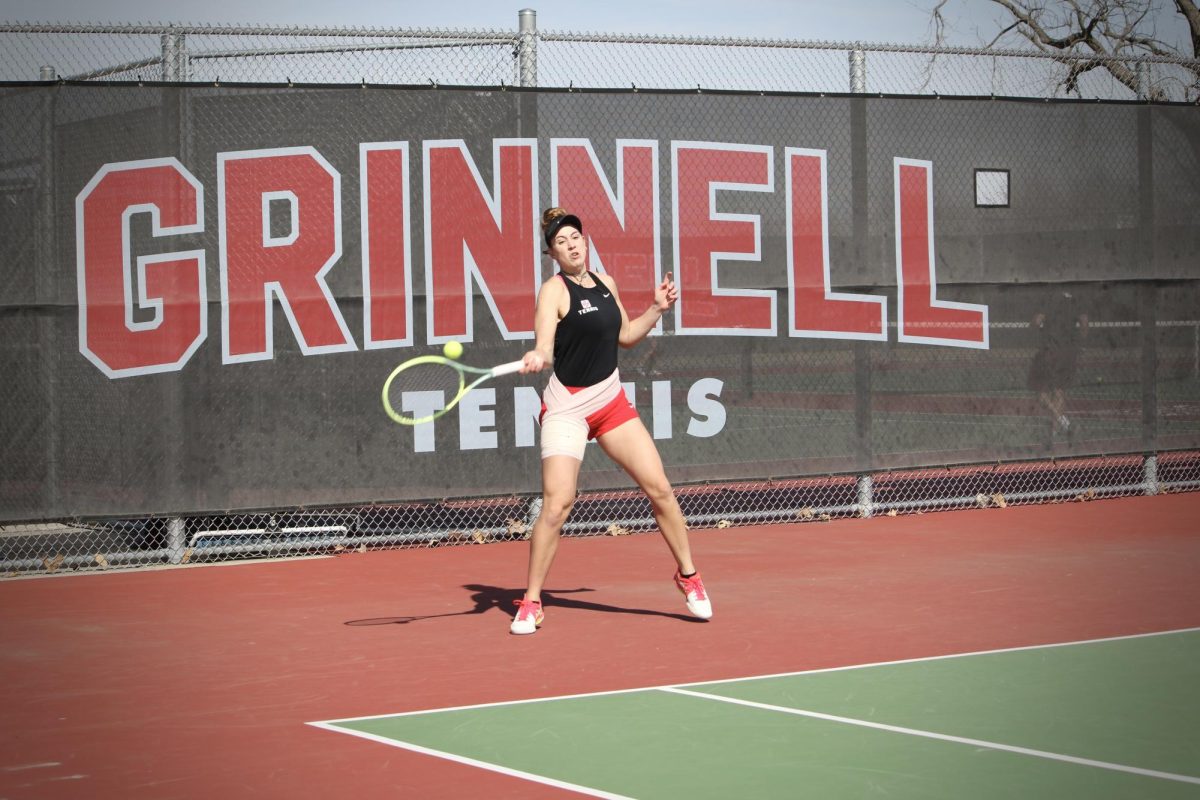By Jack Schulte
schultej@grinnell.edu
At the beginning of the 2016 NFL season, San Francisco 49ers quarterback Colin Kaepernick stirred up controversy for sitting during the National Anthem. Critics claimed that sitting out disrespects the flag, and the debate raised the question of whether or not athletes should be able to use their privileged platform to express their political beliefs.
Nonetheless, Kaepernick started a nationwide movement. Athletes at every level, in every sport, have been sitting or raising a fist during the National Anthem to express political frustrations. At Grinnell College, activism is nothing new. Considering the recent national attention brought to athlete activism, The S&B caught up with coaches Nate Kolacia ’16, Paige Madara and Queer Athletes and Allies co-chair John Gallagher ‘17, to talk about how athletics and politics collide at Grinnell.
Nate Kolacia ’16, assistant Track and Field and Cross Country coach, was able to provide the unique perspective of a coach who was a student-athlete at Grinnell just last year.
“There’s definitely a platform for politics and athletics to work together, given the historical influence that athletics has provided for our country.” Kolacia said.
Kolacia has also noticed, in his time as both a coach and an athlete, that Grinnell student-athletes are organically politically active. “A lot of people on campus happen to be student athletes, naturally. The campus is naturally politically active. You can draw an indirect correlation between the two.”
As for a specific action he’s seen, he noted how the football team paints its field rainbow colored for one home game in solidarity with the LGBTQIA community. As far as Kolacia is concerned, there’s no reason to impede on anyone’s right to express themselves.
Like Kolacia, head Tennis coach Paige Madara is open to political expression in athletics. “I think it is important for all individuals, regardless of their athletic or celebrity stature, to feel comfortable voicing their opinions,” Madara said. “So long as those opinions are not expressing disrespect towards other individuals or groups.”
In the same vein as Kolacia, Madara sees Grinnell College athletics as a perfectly acceptable place to express political views, as long as no one is hurt in the process. Both Kolacia and Madara gave examples of acceptable political action in the sports world. When asked about Kaepernick’s national anthem protests, Kolacia said “It’s not directly interfering [with the game] at all, and I think it’s totally great if he wants to support his cause.”
Madara noted that professional tennis player Nicole Gibbs has used her status as a platform for political action. Madara mentioned that Gibbs “makes a point to not only have educated and informed statements, but also to engage in conversation on both sides of the spectrum to further the conversation.”
Though Kolacia and Madara do not represent the entire athletic department, they make it clear that Grinnell athletic teams should be a safe environment for discourse. Posted on locker room doors in the Bear Athletic Center are signs that read “safe space.” In fact, making Grinnell athletics a safe space for people of all beliefs has become a crucial mission for student-athlete groups like Queer Athletes and Allies (QAA).
In Gallagher’s role as the co-chair of Queer Athletes and Allies, he helps provide support for student-athletes in the LGBTQIA community. As a fourth-year captain of the track team, Gallagher knows firsthand how tight-knit athletic teams are at Grinnell.
“In a similar vein to the hesitation people feel about ‘coming out’ on a sports team, there is always a fear that being seen as different would be detrimental to being a part of the team or being welcomed,” Gallagher said.
Along with coaches Kolacia and Madara, Gallagher sees athletics as a place where people should be able to express themselves freely. Gallagher is apprehensive to say that respectful discourse actually happens, though.
“At Grinnell, athletics can serve a very social purpose as well, so expressing a different opinion politically, personally or academically is something people definitely avoid for the sake of feeling included.”
Coaches like Kolacia and Madara make it clear that athletics are a valuable platform for political expression. Student-athlete Gallagher’s perspective, though, reveals that perhaps using Grinnell athletics as a political platform is not often put into practice.





























































